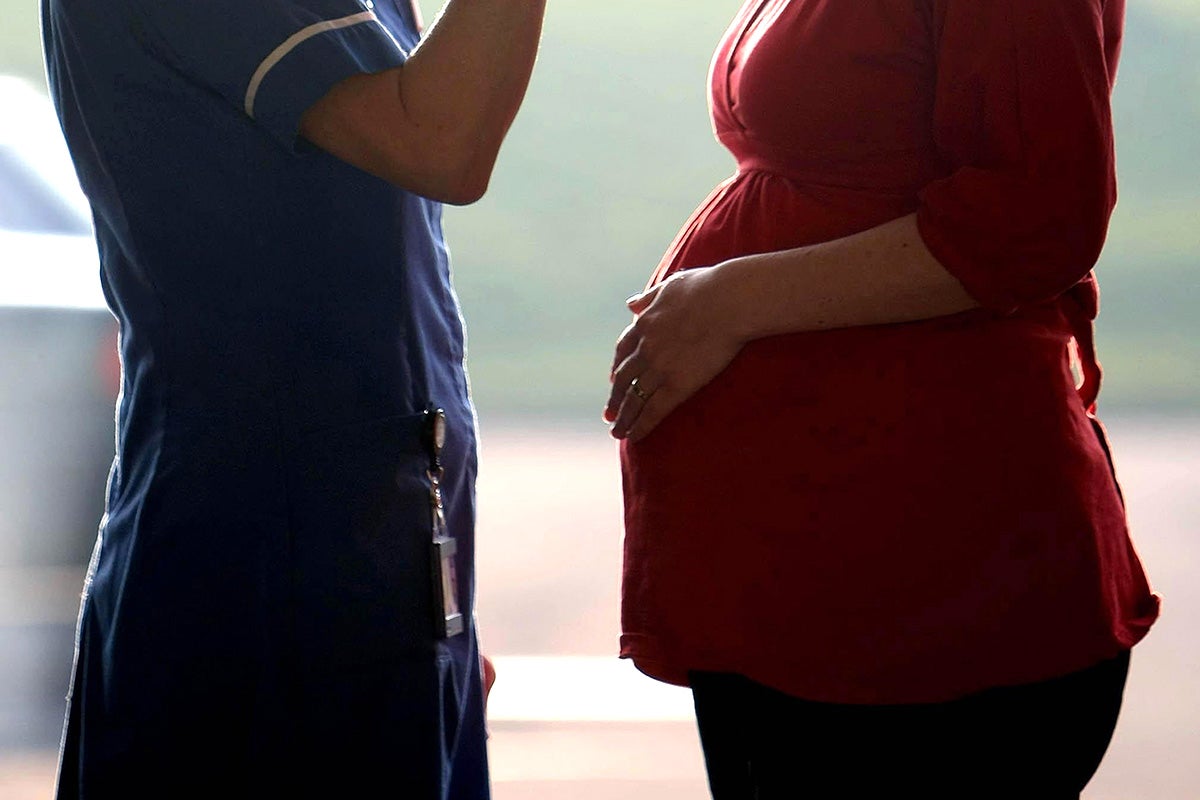More women continuing with unplanned pregnancies due to abortion appointment shortage
Abortion services grappling with ‘unprecedented demand’, healthcare provider warns

Growing numbers of women are being forced to continue unplanned pregnancies due to a shortage of abortion appointments, new data shows.
The figures, released by British Pregnancy Advisory Service, the UK’s largest abortion provider, show calls to their service surged by around a third from March to September this year, the period when lockdown eased.
The organisation said abortion services are grappling with “unprecedented demand”. It also warned requests for abortions in the second trimester are increasing, but problems with staffing and a lack of hospital space for surgical procedures means women cannot always access appointments.
Experts said the rise in the need for abortions is likely to be a combination of people socialising more now that lockdown has lifted, struggles to access contraception, and the precarious economic climate leaving people fearful of carrying on with pregnancies.
“This is resulting in a growing number of women being turned away and being forced to continue pregnancies against their will,” the British Pregnancy Advisory Service said.
It comes after The Independent previously revealed thousands of women have had abortions after falling pregnant while having difficulties accessing contraception during the pandemic.
Clare Murphy, chief executive of British Pregnancy Advisory Service, said: “We are already struggling to meet women’s needs as requests for help have grown over the last six months.”
She noted that while having a pregnancy terminated is a “safe and straightforward procedure”, the quicker it can be provided, “the better for women’s health and wellbeing”.
“It is heartbreaking to turn away women in some of the most challenging circumstances imaginable,” Ms Murphy added. “We urge the secretary of state for Health and Social Care to ensure access to telemedical abortion remains an option for women, so we can continue to meet as many women’s needs as early as possible. Women’s health will suffer without it.”
Leading healthcare providers have repeatedly called for the option to have at home early abortions, which were rolled out in the wake of lockdown measures in spring 2020, to be made permanent.
The UK’s largest study into abortions previously found at home early medical abortions pose no greater risk and allow women to have the procedure much earlier on in their pregnancy.
Having a medical abortion involves taking two tablets – with health professionals saying the pills have less adverse consequences than paracetamol. Prior to the pandemic, getting the first tablet, mifepristone, necessitated a visit to an abortion clinic.
The government is currently deciding whether to withdraw telemedical abortion services in the wake of a public consultation.
Ms Murphy added: “The current permission for telemedical abortion has enabled access to care at the earliest gestations, and has been particularly beneficial for women in some of the most complex circumstances.
“These are women who may struggle to access in-clinic care, because of distance and reliance on public transport, who are in abusive relationships where travel to a clinic may be impossible, or with precarious work or childcare arrangements that make taking a day off extremely difficult. In the absence of telemedical care and support, these women present to services later.”
The Independent has frequently reported on how the pandemic has profoundly disrupted sexual health clinics, with services forced to shut or run reduced clinics, while staff are transferred to work with Covid patients or forced to self-isolate.
While women have struggled to obtain the most effective long-acting reversible contraceptive choices (LARC) of a coil or an implant due to these requiring face-to-face appointments which have been greatly reduced as consultations are carried out remotely via phone or video call.
Join our commenting forum
Join thought-provoking conversations, follow other Independent readers and see their replies
Comments

Bookmark popover
Removed from bookmarks